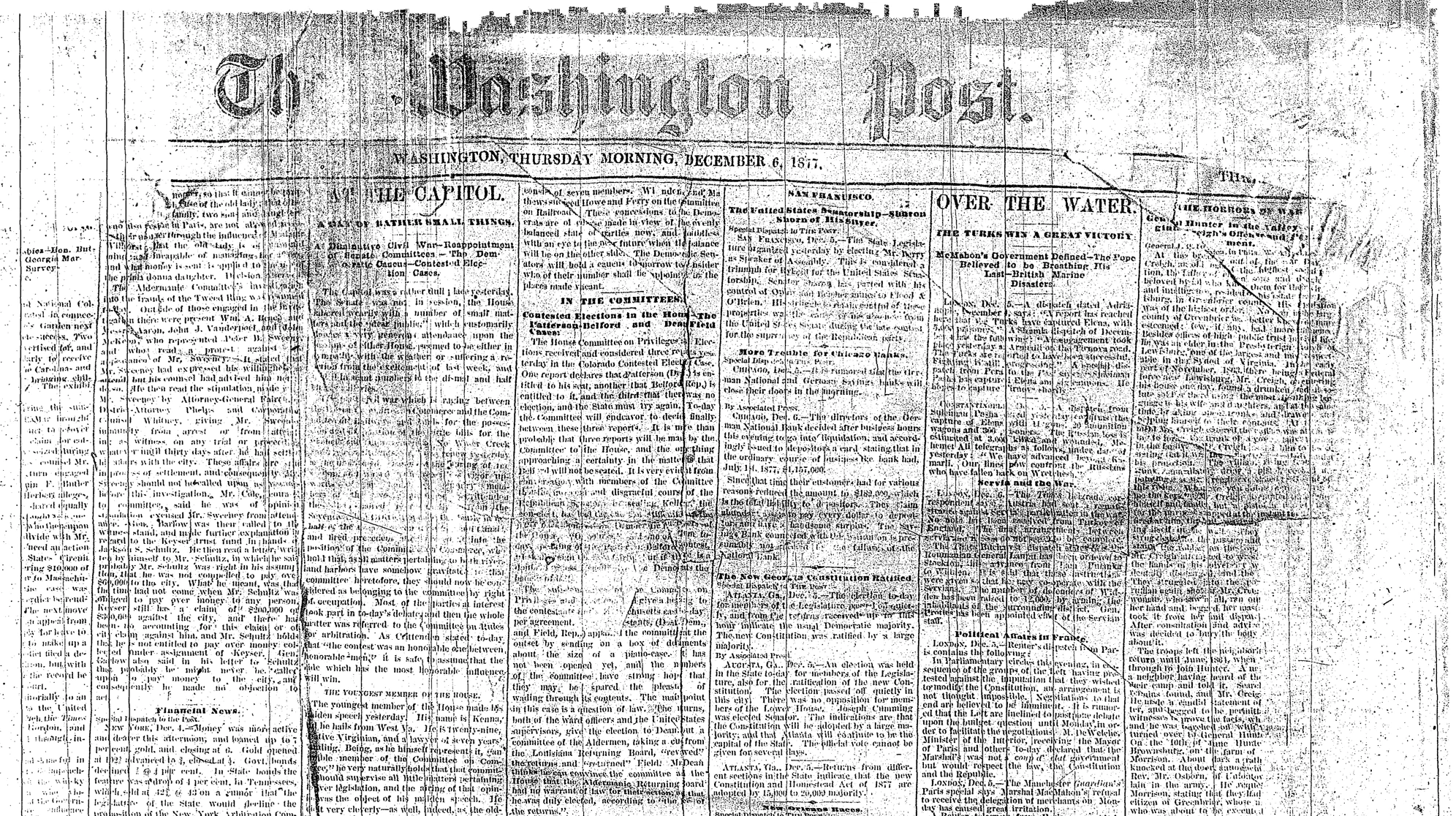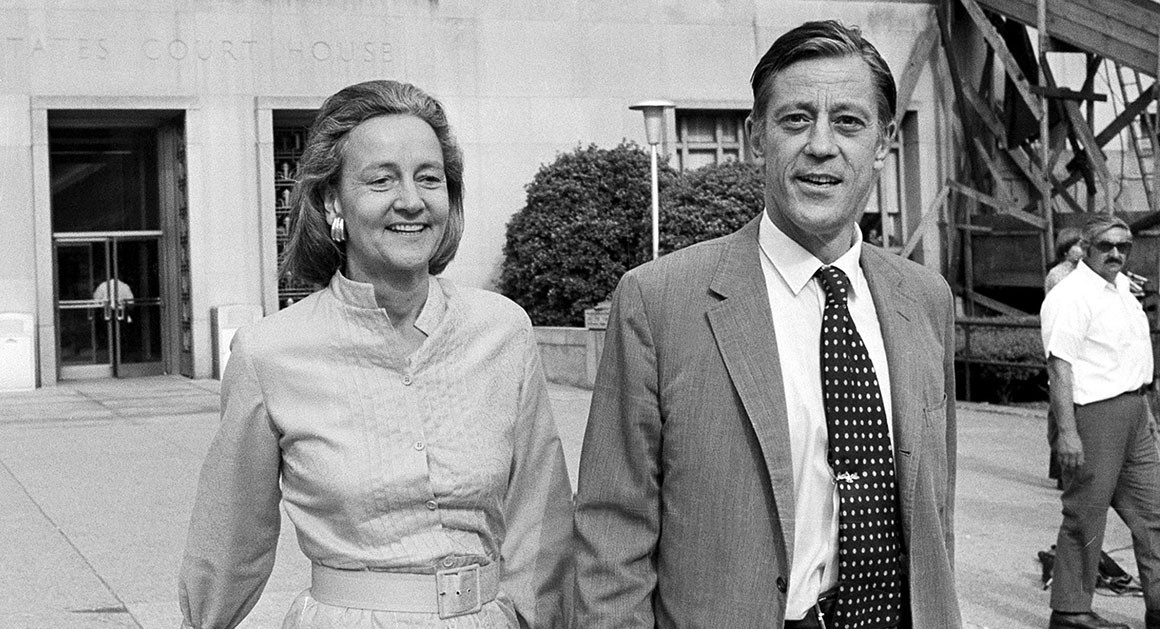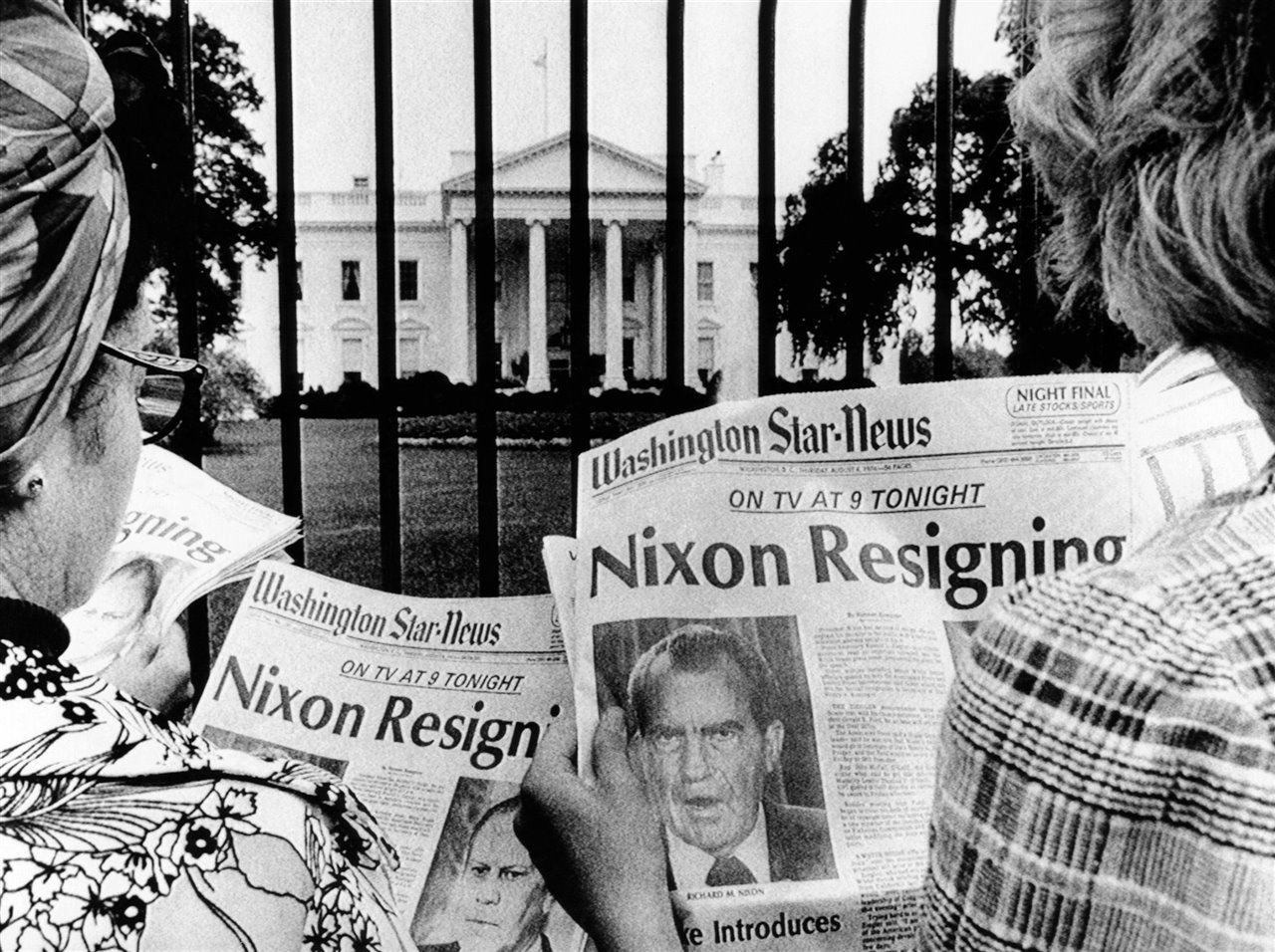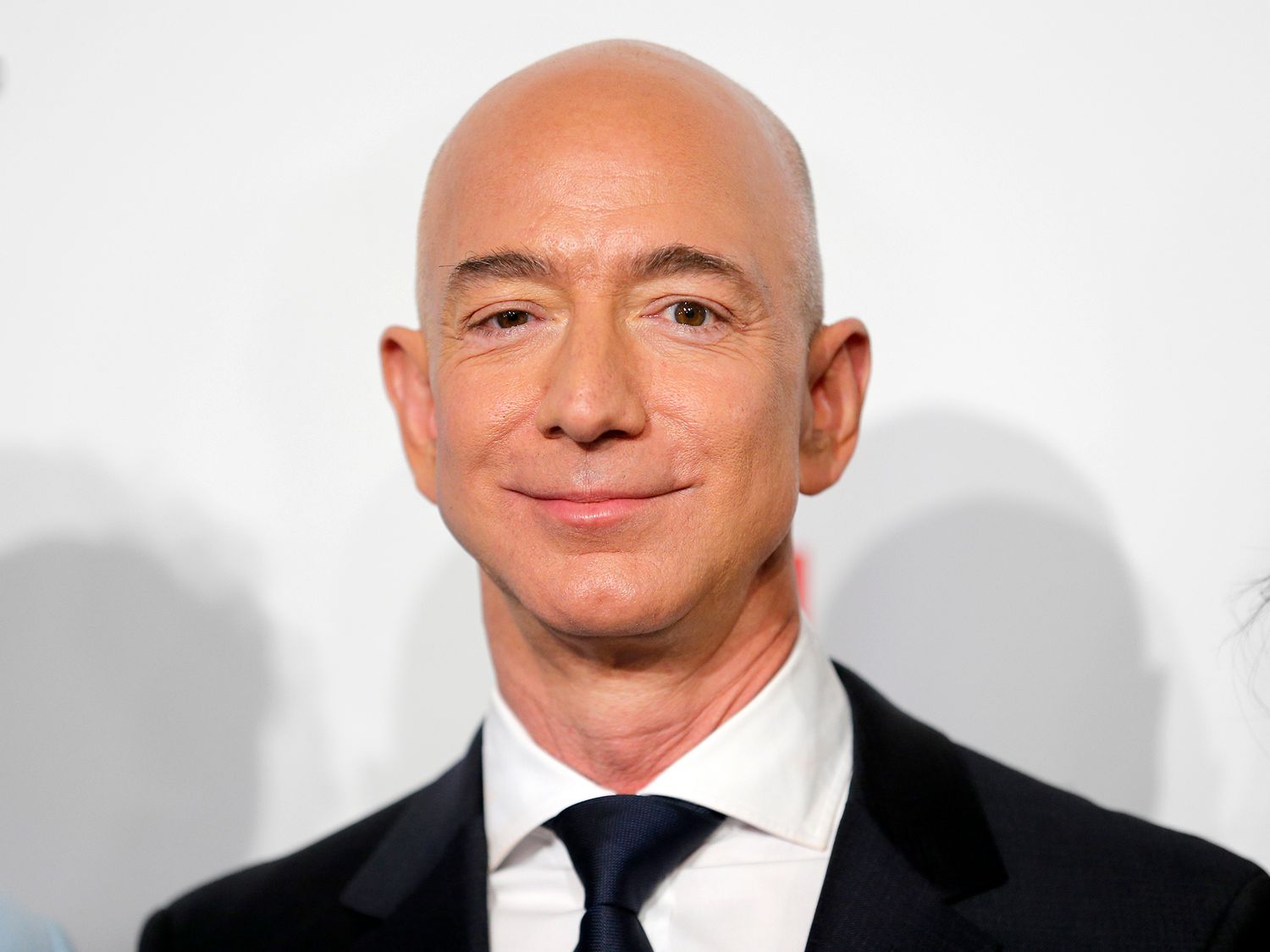Who Owns The Washington Post - A Deep Dive Into The Ownership Of A Media Giant
The Washington Post stands as a beacon of journalistic integrity and influence in the world of media. Founded in 1877, this iconic newspaper has shaped public opinion, uncovered scandals, and documented history for over a century. However, behind the headlines and bylines lies a question that often intrigues many: Who owns The Washington Post?
Author:Anderson PattersonReviewer:Elisa MuellerNov 08, 2023374 Shares124.6K Views
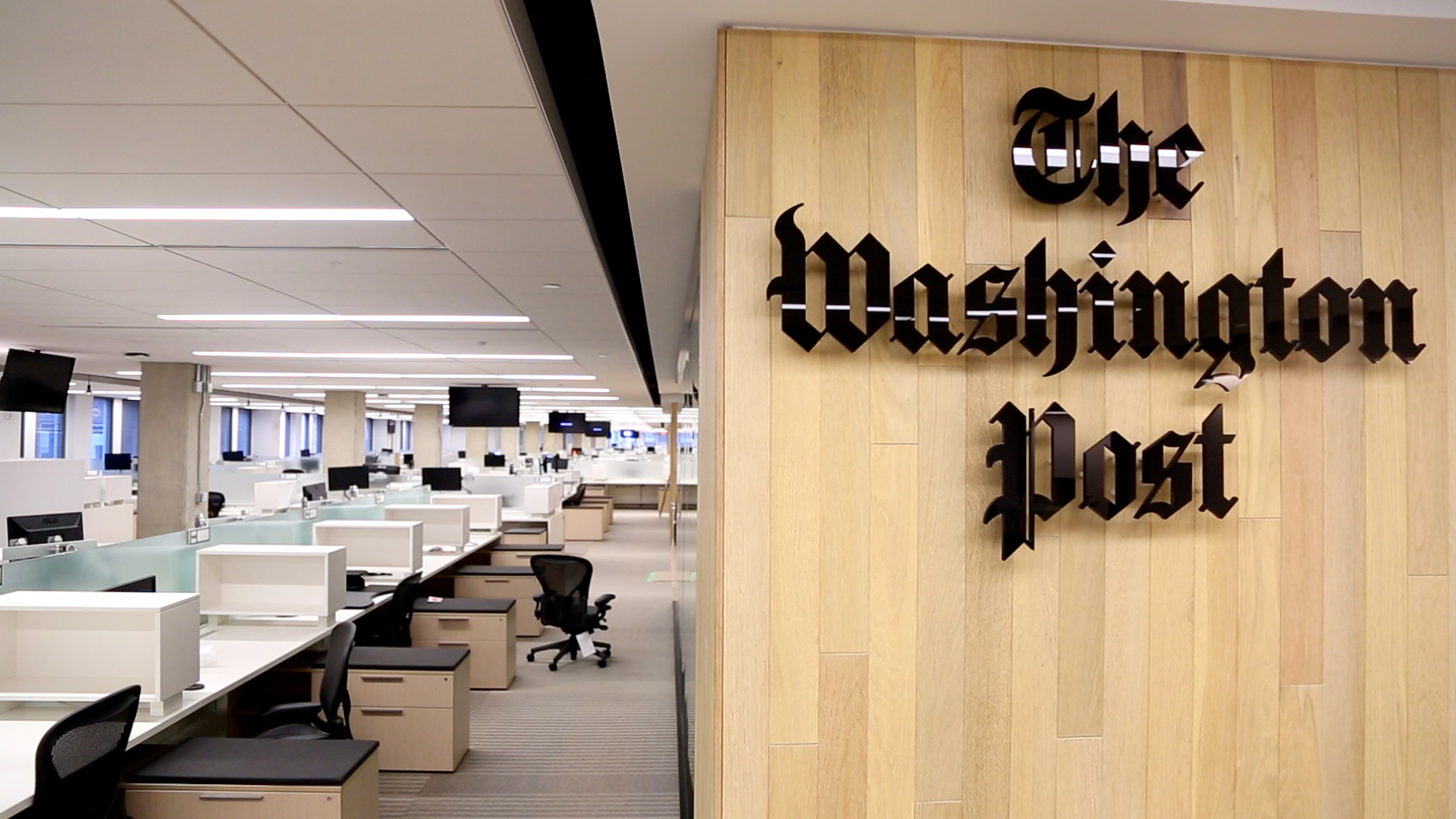
The Washington Post stands as a beacon of journalistic integrity and influence in the world of media. Founded in 1877, this iconic newspaper has shaped public opinion, uncovered scandals, and documented history for over a century. However, behind the headlines and bylines lies a question that often intrigues many: Who owns The Washington Post?
A Legacy In Print - The Washington Post's Historic Journey
The roots of The Washington Post stretch deep into the annals of American journalism, tracing back to its inception in 1877. Founded by Stilson Hutchins, the newspaper started as a four-page daily, aiming to serve the burgeoning capital city with news that mattered. In its early years, The Post, much like the nation it reported on, faced trials and tribulations. Yet, it persevered, laying the foundation for what would become an unparalleled legacy in the world of print media.
From Humble Origins To Journalistic Excellence
In its infancy, The Washington Post was but a small publication housed in a cramped office, its future uncertain. However, under the stewardship of Eugene Meyer, who acquired the paper in 1933, the trajectory of The Post took a dramatic turn. Meyer's vision and commitment to quality journalism transformed the paper into a reliable source of news for the nation's capital.
The Post's unwavering commitment to reporting the truth, even when faced with adversity, became evident during the Watergate scandal. The relentless investigative journalism led by reporters Bob Woodward and Carl Bernstein under the editorial guidance of Katharine Graham, propelled The Washington Post into the national spotlight. The paper's fearless pursuit of the truth during this tumultuous period earned it the prestigious Pulitzer Prize, solidifying its reputation as a fearless watchdog of democracy.
Continuing The Tradition - The Post's Enduring Impact
As The Washington Post continues its historic journey, it carries with it the legacy of the past while embracing the challenges of the future. In an era where the media landscape is constantly evolving, The Post stands as a testament to the enduring power of print journalism. Its ability to adapt, innovate, and maintain its commitment to truth serves as an inspiration for journalists and readers alike.
Upholding Core Values - Truth, Accuracy, And Accountability
In an ever-shifting landscape of news and information, where sensationalism often overshadows substance, The Washington Post stands as a bastion of unwavering commitment to fundamental journalistic principles: truth, accuracy, and accountability. These bedrock values are not mere words but guiding lights that have illuminated The Post's path through the most challenging of times.
A Shield Against Misinformation
In the digital age, where the immediacy of news often takes precedence over its accuracy, The Washington Post remains steadfast in its dedication to the truth. The newspaper's editorial ethos rejects the allure of clickbait and sensationalism. Instead, it places a premium on rigorous fact-checking, extensive research, and thorough analysis. This commitment acts as a shield against the rampant spread of misinformation, providing readers with a reliable sanctuary of truth in a sea of conflicting narratives.
Navigating Turbulent Waters - Wars, Politics, And Social Change
The Washington Post's journey has been marked by historic events, including wars, political upheavals, and societal transformations. In each instance, the newspaper's commitment to its core values became particularly evident. During times of conflict, its journalists embedded themselves in the heart of danger, bringing back stories that went beyond mere headlines. Amidst political storms, The Post stood resilient, presenting unbiased accounts that allowed readers to form their opinions based on unadulterated facts.
Moreover, as society underwent transformative changes, The Post was at the forefront, shedding light on issues that demanded attention. Whether it was civil rights, environmental concerns, or healthcare disparities, the newspaper's reporters delved deep, uncovering truths that often spurred societal dialogue and change. This unwavering dedication to accountability became a catalyst for informed discussions, fostering a more informed and engaged citizenry.
Precision And Context - The Pillars Of Reliable Information
In the pursuit of truth, The Washington Post's reporters and editors delve into stories with a meticulous approach that combines precision and context. Each piece of information undergoes rigorous scrutiny, ensuring that the presented facts are not only accurate but also placed within the broader context. This dedication to providing comprehensive, well-rounded information empowers readers to grasp the complexities of the issues at hand fully.
Moreover, The Post's commitment to accuracy extends beyond the newsroom. Corrections, when necessary, are promptly issued, reaffirming the newspaper's accountability to its readers. In an era where misinformation can spread like wildfire, this transparency becomes a testament to The Washington Post's integrity and reliability.
A Beacon In An Increasingly Complex World
In an era where the boundaries between fact and fiction blur, The Washington Post stands resolute, serving as a beacon of reliable information. Its unwavering dedication to truth, accuracy, and accountability not only upholds the highest standards of journalism but also reinforces the vital role of a free press in a democratic society. As the world becomes increasingly complex, The Post's commitment to these core values ensures that readers are equipped with the knowledge they need to navigate the intricacies of our global landscape.
The Graham Era - A Pivotal Ownership Phase
In the annals of The Washington Post's rich history, the Graham Erastands out as a transformative period that shaped the newspaper's identity and solidified its legacy as a beacon of fearless journalism. For more than eight decades, The Washington Post remained under the steadfast ownership of the Graham family, a tenure that saw unparalleled growth, unwavering commitment to truth, and a dedication to upholding the values of journalistic integrity.
Katharine Graham - A Trailblazer In Journalism
At the helm of The Washington Post during this pivotal phase was Katharine Graham, a trailblazing woman whose leadership left an indelible mark on the media industry. Breaking barriers in a male-dominated field, Graham's tenure as the publisher of The Post was defined by her unwavering dedication to the truth and her commitment to journalistic excellence. Her visionary leadership not only propelled The Post to new heights but also inspired generations of aspiring journalists, proving that gender was no bar to success in the world of media.
Fearless Journalism During The Watergate Scandal
The defining moment of the Graham Era came during the infamous Watergate scandal. The Washington Post, under Graham's guidance, undertook a fearless and relentless investigation into the complex web of political corruption that engulfed the Nixon administration. Reporters Bob Woodward and Carl Bernstein, with the editorial support of Graham, pursued the truth with unyielding determination.
Their investigative prowess and the newspaper's commitment to uncovering the facts played a pivotal role in unraveling the Watergate conspiracy, eventually leading to President Richard Nixon's resignation. The Washington Post's unwavering pursuit of the truth during this tumultuous period solidified its reputation as a fearless truth-seeker and earned it the esteemed Pulitzer Prize for Public Service in 1973. This recognition was not merely an award; it was a testament to the newspaper's unrelenting dedication to holding those in power accountable, regardless of the consequences.
Legacy Of Fearless Truth-Seeking
The legacy of the Graham Era continues to resonate through the halls of The Washington Post. Katharine Graham's fearless approach to journalism and her commitment to upholding the truth underpins the newspaper's ethos to this day. The lessons learned during her tenure echo in the minds of every journalist, editor, and contributor, serving as a constant reminder of the importance of investigative rigor, editorial independence, and the courage to question authority.
Jeff Bezos And The Digital Revolution
In the ever-evolving landscape of media, the year 2013 marked a profound turning point in The Washington Post's history. It was during this year that the newspaper witnessed a seismic shift in ownership, catapulting it into a new era under the stewardship of one of the tech industry's most visionary leaders: Jeff Bezos, the founder of Amazon.
A Visionary Investment
Jeff Bezos' acquisition of The Washington Post for $250 millionwas more than a business deal; it was a strategic investment in the future of journalism. Bezos, known for his transformative approach to technology and business, saw the immense potential in the newspaper's rich legacy and its capacity to thrive in the digital age. His decision to acquire The Post was a testament to his belief in the enduring value of quality journalism and the importance of a free press in society.
Digital Expertise Meets Editorial Excellence
Bezos, armed with his digital expertise and financial acumen, brought a fresh perspective to The Washington Post. He understood the power of technology in reshaping how news was consumed and distributed. Under his ownership, the newspaper underwent a digital renaissance. Investments were made in cutting-edge technologies, innovative storytelling formats, and user-friendly interfaces, transforming The Post's digital presence into a seamless and engaging experience for readers.
Expanding Audience Reach
One of the most significant impacts of Bezos' ownership was the substantial growth in The Post's digital audience reach. Through strategic digital marketing, social media engagement, and optimized online content, The Washington Post transcended geographical boundaries, reaching readers around the globe. The newspaper's website and mobile applications became portals to a world of information, attracting diverse audiences and fostering a sense of global community.
Innovations In Journalism
Under Bezos' guidance, The Washington Post embraced innovative storytelling techniques. Interactive graphics, immersive multimedia experiences, and data-driven journalism became integral parts of the newspaper's digital repertoire. These innovations not only enhanced the reader experience but also allowed for a deeper exploration of complex issues, fostering a more profound understanding of the news stories that shape our world.
The Legacy Of Bezos' Digital Vision
Jeff Bezos' ownership of The Washington Post ushered in an era of digital transformation and innovation. His legacy lives on in the newspaper's ability to adapt, evolve, and remain at the forefront of the digital revolution. The Post's success in the digital realm stands as a testament to Bezos' foresight and commitment to excellence, proving that a marriage of journalistic integrity and technological innovation can pave the way for a sustainable future in the ever-changing landscape of digital journalism.
The Impact Of Ownership On Journalism: Navigating The Complex Web
The ownership of a media powerhouse, such as The Washington Post, carries profound implications for the nature and tone of the news it delivers. Understanding this ownership dynamic is pivotal; it unveils the intricate threads woven into the fabric of journalistic integrity, shedding light on potential biases, influences, and perspectives that can shape the narrative.
The Bezos Paradigm
Jeff Bezos' ownership of The Washington Post, marked by his digital prowess and visionary approach, ushered in an era of innovation and expansion. While Bezos has maintained a relatively hands-off approach to editorial matters, his influence is palpable in the newspaper's digital transformation and global outreach. The integration of technology and journalism, facilitated by Bezos' ownership, opened new avenues for storytelling and audience engagement.
The Ongoing Debate
Yet, the question of how ownership impacts journalistic integrity remains a nuanced and hotly debated topic. While Bezos might have refrained from overt editorial interference, the mere presence of a high-profile owner can introduce subtleties and considerations that journalists must navigate. The fear of potential self-censorship or the conscious or unconscious alignment of editorial content with the owner's interests looms large in such scenarios.
Guardians Of Truth
The journalists at The Washington Post, cognizant of these challenges, stand as the guardians of truth. Their commitment to unbiased reporting, investigative journalism, and holding power to account remains unswerving. The newsroom's independence is safeguarded by the ethical compass of its reporters and editors, ensuring that the pursuit of truth transcends any external influences.
The Broader Implications
Beyond The Washington Post, the discussion about media ownership reverberates across the landscape of democracy. Media pluralism, a cornerstone of democratic societies, hinges on diverse ownership, ensuring a multiplicity of voices and perspectives. When ownership becomes concentrated in the hands of a few, there arises a concern: does this concentration dilute the variety of viewpoints essential for a vibrant democratic discourse?
Striking A Balance
In this intricate dance between ownership and journalistic integrity, transparency and accountability emerge as indispensable partners. Media organizations, including The Washington Post, must maintain a high degree of transparency regarding their ownership structures, editorial policies, and decision-making processes. Public scrutiny, combined with the organization's commitment to self-reflection, can act as a safeguard against undue influence and biases.
Who Owns The Washington Post - FAQs
Who Owns Washington Post Now?
Jeff Bezos owns The Washington Post. He purchased the newspaper in 2013 for $250 million, a significant move that marked a pivotal moment in the publication's history.
Why Does Jeff Bezos Own The Washington Post?
Jeff Bezos, the founder of Amazon, acquired The Washington Post because he saw the newspaper's potential and importance in the digital age. His background in technology and his visionary approach to business made him keenly aware of the evolving landscape of media.
Bezos believed in the value of quality journalism and the need for a strong, independent press in a democratic society. His ownership aimed to bring his digital expertise to the newspaper, ushering in a new era of online journalism and ensuring its continued relevance in an increasingly digital world.
What Companies Are Owned By The Washington Post?
The Washington Post, primarily known for its newspaper, is owned by Nash Holdings, a company controlled by Amazon founder Jeff Bezos. The newspaper operates independently under Nash Holdings, and there is no public information to suggest that The Washington Post owns other companies. However, for the most current and detailed information, it is advisable to directly check The Washington Post's official website or the latest news sources, as ownership structures can change over time.
Conclusion
In the ever-changing landscape of media, The Washington Post stands as a testament to the enduring power of quality journalism. Its ownership history, from the Graham family's legacy to Jeff Bezos' digital innovations, showcases the newspaper's ability to adapt and thrive.
For the most current information on who owns The Washington Post, it's always best to refer to reliable news sources and the newspaper's official statements. As media ownership continues to evolve, so too will the narratives and perspectives that shape our understanding of the world through the pages of The Washington Post.
Jump to
A Legacy In Print - The Washington Post's Historic Journey
Upholding Core Values - Truth, Accuracy, And Accountability
The Graham Era - A Pivotal Ownership Phase
Jeff Bezos And The Digital Revolution
The Impact Of Ownership On Journalism: Navigating The Complex Web
Who Owns The Washington Post - FAQs
Conclusion

Anderson Patterson
Author
Anderson Patterson, a tech enthusiast with a degree in Computer Science from Stanford University, has over 5 years of experience in this industry.
Anderson's articles are known for their informative style, providing insights into the latest tech trends, scientific discoveries, and entertainment news.
Anderson Patterson's hobbies include exploring Crypto, photography, hiking, and reading.
Anderson Patterson's hobbies include exploring Crypto, photography, hiking, and reading.
In the Crypto niche, Anderson actively researches and analyzes cryptocurrency trends, writes informative articles about blockchain technology, and engages with different communities to stay updated on the latest developments and opportunities.

Elisa Mueller
Reviewer
Elisa Mueller, a Kansas City native, grew up surrounded by the wonders of books and movies, inspired by her parents' passion for education and film.
She earned bachelor's degrees in English and Journalism from the University of Kansas before moving to New York City, where she spent a decade at Entertainment Weekly, visiting film sets worldwide.
With over 8 years in the entertainment industry, Elisa is a seasoned journalist and media analyst, holding a degree in Journalism from NYU. Her insightful critiques have been featured in prestigious publications, cementing her reputation for accuracy and depth.
Outside of work, she enjoys attending film festivals, painting, writing fiction, and studying numerology.
Latest Articles
Popular Articles
